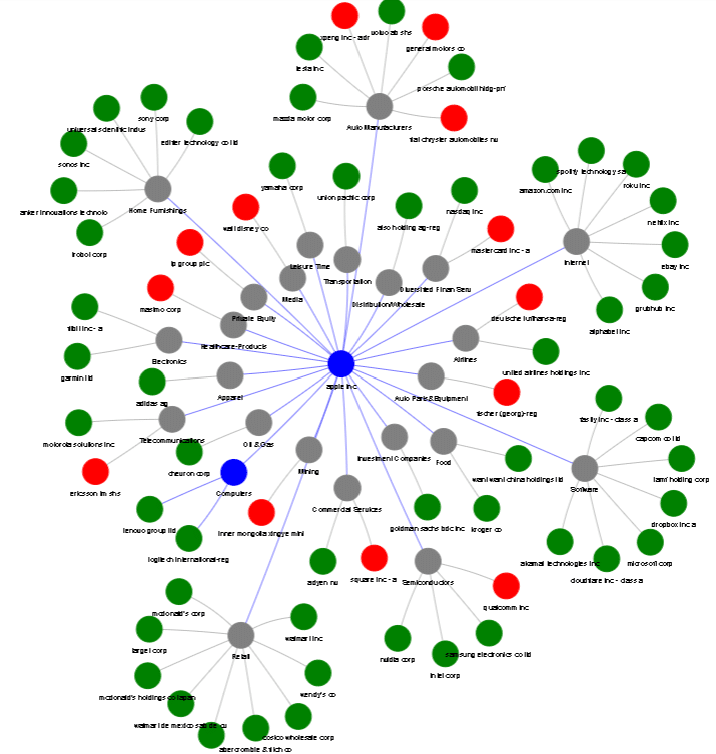Apple, the technology giant, has established itself as a leader in the global market, known for its innovative products and seamless user experience. Behind this success lies a complex and vast supply chain that spans continents and involves numerous suppliers. This article explores how the scale and complexity of Apple’s supply chain influence global markets, examining the company’s efforts towards sustainability, the challenges it faces, and the controversies that have surrounded its supply chain.
Table of Contents
ToggleThe scale and complexity of Apple’s supply chain
Apple’s supply chain is a massive network that involves thousands of suppliers and partners worldwide. From sourcing raw materials to manufacturing and distribution, every step in the process is meticulously coordinated to ensure a seamless supply of products. This scale and complexity enable Apple to meet the demands of its global customer base while maintaining high standards of quality and efficiency.
The supply chain starts with the sourcing of raw materials, including metals, plastics, and glass, from various regions around the world. These materials are then transported to manufacturing facilities, mainly located in China, where they are transformed into components and assembled into final products. The finished products are then distributed to Apple’s retail stores and authorized resellers worldwide.
To provide some context, the below image shows all of Apple’s first-tier supplier (and customer) relationships as generated by our Supply Chain Links Monitor tool.

Providing a comprehensive overview, the visual representation below delves into the intricate labyrinth of Apple’s primary supplier (and customer relationships). This intricate web not only underscores the complexity of Apple’s supply chain but also offers a glimpse into the interwoven relationships that extend into the second and third tiers (available to see in our Business and Enterprise versions). Beyond the immediate connections, the second and third tier relationships reveal the ripple effects and dependencies that characterise the dynamics of the supply chain ecosystem.
Supply chain sustainability efforts by Apple
Recognizing the environmental impact of its operations, Apple has made significant efforts towards supply chain sustainability. The company has set ambitious goals to reduce its carbon footprint, conserve water resources, and minimize waste throughout its supply chain. Apple also works closely with its suppliers to ensure they adhere to strict environmental standards and ethical practices.
To achieve these sustainability goals, Apple invests in renewable energy projects, such as solar and wind farms, to power its facilities and reduce reliance on fossil fuels. The company also collaborates with suppliers to implement energy-efficient manufacturing processes, recycling programs, and responsible waste management practices. These initiatives not only benefit the environment but also contribute to cost savings and operational efficiency.
Challenges faced by Apple’s supply chain
Operating a vast and complex supply chain comes with its fair share of challenges. Apple faces the constant pressure to meet high customer demand while maintaining quality standards. The company must manage risks associated with supply chain disruptions, such as natural disasters, political instability, and changes in regulations.
Additionally, as technology advances rapidly, Apple must continuously innovate and introduce new products to stay competitive. This requires close collaboration with suppliers to ensure the timely availability of components and materials. With the ever-changing landscape of the technology industry, Apple’s supply chain must remain agile and adaptable to meet evolving market demands.
Issues and controversies surrounding Apple’s supply chain
Despite its success, Apple’s supply chain has faced scrutiny and controversies over the years. One of the major concerns is the treatment of workers in its supplier factories, particularly in regions like China. Reports of long working hours, low wages, and poor working conditions have tarnished Apple’s reputation and raised questions about its commitment to ethical practices.
Another issue is the use of conflict minerals in Apple’s supply chain. These minerals, such as tin, tantalum, tungsten, and gold, are sourced from regions associated with human rights abuses and environmental degradation. Apple has taken steps to address this issue by implementing rigorous due diligence processes and working towards a conflict-free supply chain.
Addressing criticisms of Apple’s supply chain
Apple acknowledges the criticisms and has taken steps to address them. The company has implemented supplier responsibility programs, conducting regular audits to ensure compliance with its standards. Apple works closely with suppliers to improve working conditions, provide training opportunities, and promote fair wages. It has also increased transparency by publishing annual reports on supplier responsibility, detailing progress and challenges faced.
Furthermore, Apple has actively engaged with non-governmental organizations and industry groups to collaborate on improving supply chain practices. By collaborating with stakeholders, Apple aims to create a positive impact beyond its own operations and influence the industry as a whole.
Apple’s influence over its suppliers
Apple’s size and market dominance give it significant leverage over its suppliers. The company sets strict standards and expectations, requiring suppliers to meet stringent quality, environmental, and labour standards. This influence extends to product design, where Apple collaborates closely with suppliers to ensure seamless integration of components and materials.
By working closely with suppliers, Apple can maintain control over its supply chain and ensure the delivery of high-quality products to its customers. However, this influence also comes with the responsibility to ensure fair and ethical practices throughout the supply chain.
Impacts of Apple’s supply chain on global markets
Apple’s supply chain has a profound impact on global markets. The company’s ability to manufacture products at scale and deliver them efficiently has disrupted traditional models and reshaped industries. Apple’s success has inspired other companies to adopt similar supply chain strategies, emphasizing efficiency, quality, and innovation.
Moreover, the demand for Apple’s products has created a ripple effect throughout its supply chain, benefiting suppliers and local economies. The scale of Apple’s operations has created job opportunities and economic growth in regions where its suppliers are located. The company’s influence has also driven technological advancements and encouraged collaboration among suppliers to meet Apple’s standards.
Successful initiatives within Apple’s supply chain
Within its vast and complex supply chain, Apple has implemented several successful initiatives that have had a positive impact. For example, the company has made significant strides in reducing carbon emissions by transitioning to renewable energy sources and promoting energy-efficient manufacturing processes. These initiatives have not only reduced environmental impact but also yielded cost savings for Apple and its suppliers.
Apple has also focused on responsible sourcing of materials, working to eliminate the use of conflict minerals and promoting recycling programs. By partnering with suppliers, Apple has been able to create closed-loop supply chains, where materials from old devices are reused to manufacture new products. This circular approach reduces waste and conserves resources.
The future of Apple’s supply chain and its global market influence
As technology continues to evolve, Apple’s supply chain will face new challenges and opportunities. The company is likely to continue its efforts towards sustainability, pushing for further reductions in its environmental impact and promoting ethical practices throughout the supply chain.
Apple’s influence over its suppliers will remain significant, as the company strives to maintain its position as a market leader. However, with this influence comes the responsibility to ensure fair labor practices, worker welfare, and environmental stewardship.
In conclusion, Apple’s scale and complexity of its supply chain have shaped global markets, driving innovation, and setting new standards. Through its sustainability efforts and initiatives, Apple has demonstrated its commitment to responsible business practices. As consumers increasingly demand transparency and ethical sourcing, Apple’s supply chain will continue to be a critical factor in its success and influence on the global market.
Request data on Apple’s supply chain links
Ready to delve deeper into Apple’s intricate supply chain networks? Uncover nuanced data and gain unparalleled insights and supply chain transparency with our data. Elevate your understanding of Apple’s operations, risks and challenges. Request bespoke data tailored to your specific inquiries and navigate the complex web of one of the world’s technology giants by getting in touch below.
